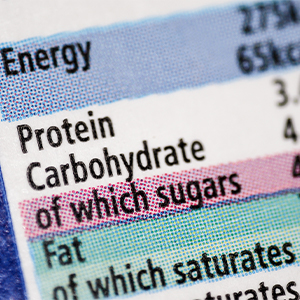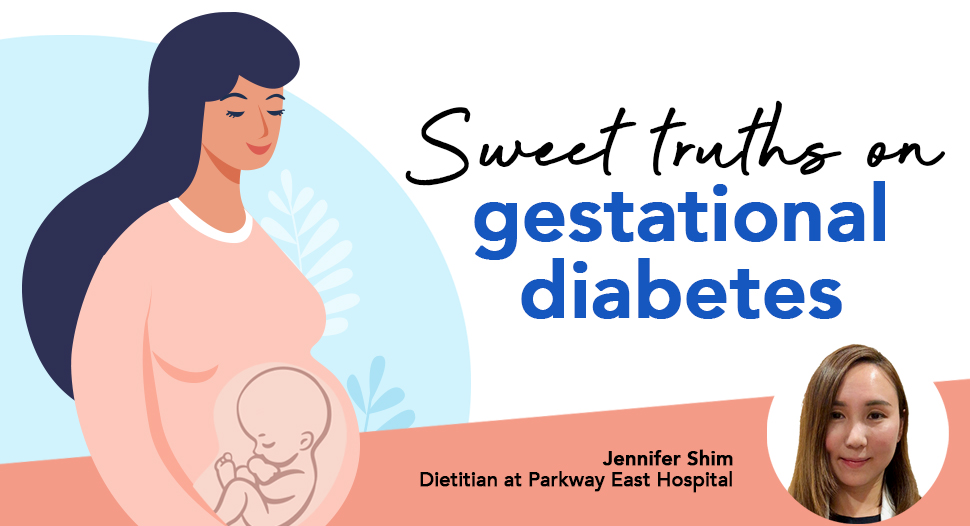Beyond type 1 and 2 diabetes, Jennifer Shim tells more about how you can take care of yourself and/or a loved one with a gestational diabetes diagnosis* for a healthier pregnancy!
Q: What is gestational diabetes and its warning signs?
A: Gestational diabetes mellitus (GDM) is a type of diabetes only seen in women who may have not had diabetes prior to pregnancy. It usually develops during the second or third trimester, and is the consequence of the body being unable to produce sufficient insulin to regulate the increase in blood sugar during pregnancy.
GDM can be challenging because it may not even present symptoms. Pregnant women may notice subtle warning signs that are similar to the two other types of diabetes: feeling thirsty, tired and possibly a dry mouth. However, these symptoms are common in all pregnant women and can be easily missed. Regular screenings between the 24th and 28th weeks of term are important as the symptoms can be better identified then.
Q: What external factor(s) greatly increases the risk for GDM?
A: The two external factors that greatly increase the risk for GDM are physical inactivity and a high-calorie fatty diet as it places the pregnant woman at higher risk of becoming overweight or obese.
Q: What are the long-term health implications of GDM?
A: Without proper management, GDM can result in preeclampsia (high blood pressure) and the developing baby will gain excessive weight. A higher birth weight will increase the baby’s risk of shoulder dystocia, a condition in which its shoulders get stuck inside the pregnant woman’s pelvis during labour. This may result in an unplanned caesarean or premature delivery. The baby will also be placed at a higher risk of obesity in their childhood and adolescent years, as well as Type 2 diabetes as an adult.
Q: Does the nutrition advice for GDM differ from those for non-pregnant women with type 1 & 2 diabetes?
A: Yes. The major difference lies in their energy needs. The energy needs of people with type 1 and 2 diabetes are fairly stable; the main goal is to achieve and maintain a healthy body weight. Pregnant women with GDM have increased energy needs compared to pregnant or non-pregnant women with either type 1 or 2 diabetes. They will need to distribute their
carbohydrate intake across 3 main meals, but also with 2 to 4 snacks such as a handful of baked walnuts with cashew nuts or unsweetened yoghurt with a slice of fruit added in between. The snacks will help to avoid excessive carbohydrate in 1 meal (or sitting) and help to balance and ensure adequate daily carbohydrate and energy intake.
Q: So why should women with GDM still consume carbohydrates?
A: Carbohydrates are still a crucial energy source for both the mother and developing foetus. However, less than half of the calories should come from carbohydrates. Pregnant women with gestational diabetes need to pay careful attention to the amount and type of carbohydrate(s) consumed as it has been established that this macronutrient has the greatest impact on blood sugar levels. Complex carbohydrates such as brown rice, fruit and vegetables also contain fibre with a chemical composition that makes them resistant to digestion. These are suitable as it will result in a gradual, rather than sharp increase in blood sugar levels after food consumption.

Q: What are other essential nutrients women with GDM should pay special attention to in their diet?
A: Folate is a B-vitamin* required for normal cell division and DNA replication. It is especially important during the early stages of pregnancy to prevent neural tube defect(s). For strong bones and teeth, pregnant women need to consume adequate calcium, as well as Vitamin D to enhance calcium absorption. On top of that, increased protein intake is required during pregnancy to support the woman and developing baby’s growth as they both come to term together.
On the other hand, it’s also important to avoid exceeding the recommended daily intake of certain nutrients to avoid adverse side effects. For example, the supplementation of fat-soluble Vitamin A & E is generally not recommended for pregnant women as the accumulation of these vitamins can have toxic effects and increase the risk of birth defects for the developing baby.
Finally, iron supplements can be taken to produce haemoglobin. Haemoglobin is particularly crucial for those with GDM as it is needed to transport double the amount of oxygen supply to meet the pregnant woman and developing baby’s increased energy needs!
*Always consult your doctor or healthcare professional first to help you design an appropriate diet programme before shopping for all these nutrient-rich foods and more at your nearest FairPrice store.



